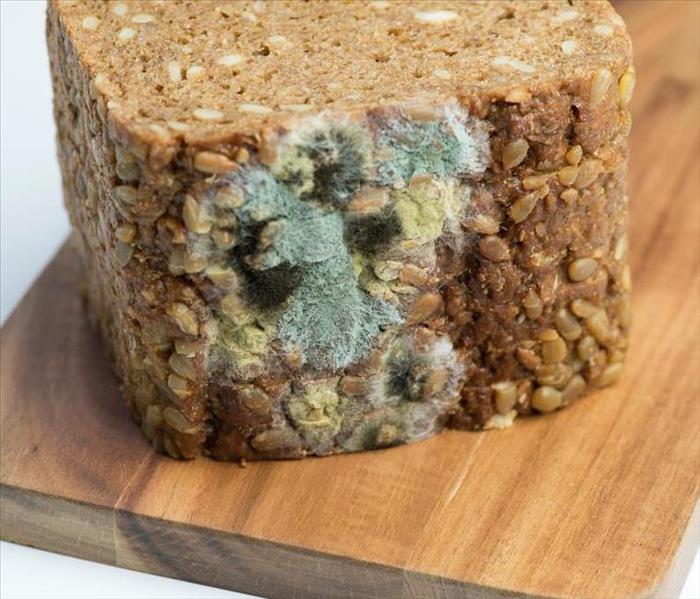5 Facts About Mold on Food
3/24/2022 (Permalink)
Have you ever purchased a loaf of bread in Greenville, NC only to go to eat it a couple of days later and realize that it's moldy? You're not only frustrated at the waste, but you're surprised at how quickly your bread went bad. Why does bread mold form so quickly? Here are five facts about mold on food that you might not know.
1. Mold Is a Fungus
Many different types of mold live outside and inside. Mold is a fungus which means that it doesn't get its food from sunlight like grass and trees. Instead, the fungus needs nutrients from food and a source of water to grow. Bread, for example, is a great source of both food and water for mold which is why fungus growth occurs so rapidly.
2. Mold Spores Are Everywhere
Because mold spores are a part of the natural environment, they can be found everywhere. Mold performs the important job of breaking down organic materials such as fallen leaves in autumn. Anytime you open a door or a window, mold spores come into your home. Mold spores only become a problem if they find the right environments in which to grow. Because they are everywhere, it's easy for mold to latch onto food items and replicate.
3. Mold Can Grow Almost Anywhere
Most molds like warm and damp environments. Often, people store bread in a cupboard in their kitchen which is a warm, dry place and bread has a lot of moisture. To prevent bread mold, you can store your loaf in the refrigerator. Just know that mold can still grow in cold environments, it just happens more slowly. To keep your bread good as long as possible, store it in the freezer and only take out as many slices as you'll eat for one meal.
4. Mold Can Smell Bad
If you've ever opened your refrigerator and smelled a dank, musty smell, it's safe to say that there's probably fridge mold of some sort growing in forgotten leftovers or on an old piece of fruit. Many people are surprised to learn that mold itself does not smell bad. As mold spores reproduce, they put off gasses which are the source of the smell. If you can smell mold, it's time to clean out the refrigerator.
5. Mold Can Be Remediated
Mold is everywhere and is a part of the natural environment. Therefore, it cannot be eliminated from a home. However, if you have a problem with excessive mold, it's important to call a mold remediation specialist to address the problem and avoid potential damage to your home. It's easy to throw away moldy food, but if you notice mold growing on a wall or windowsill, a professional should assess the area to determine the extent of the problem.
Mold spores are present everywhere. As a fungus, mold needs a reliable source of food and water to grow. Because it has both nutrients and moisture, a loaf of bread is susceptible to growing bread mold quickly. When you know the science behind mold, you can more easily take the necessary steps to prevent its growth in your home and on your food.




 24/7 Emergency Service
24/7 Emergency Service
